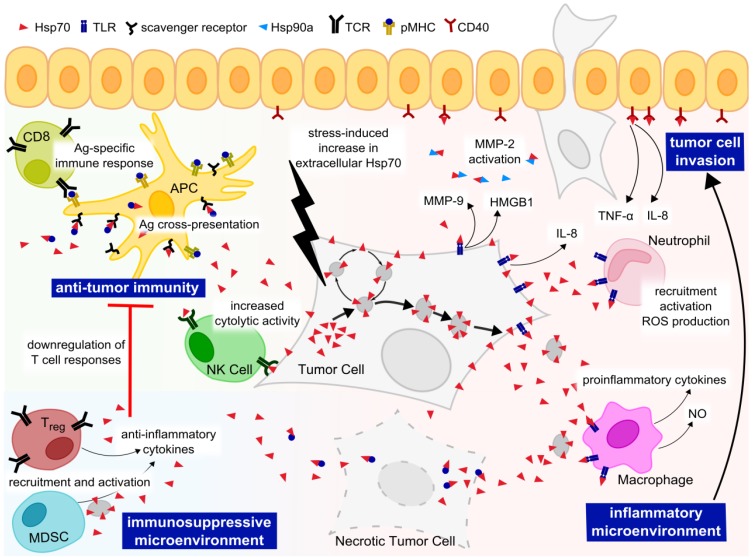Figure 3.
Versatile functions of extracellular Hsp70. Extracellular Hsp70 is able to interact with receptors expressed on cells of the tumor microenvironment. Hsp70 complexed to tumor-derived peptide binds to scavenger receptors on antigen presenting cells (APC), and is internalized and cross-presented to CD8+ T cells, thereby an adaptive tumor-specific immune response is initiated. Stimulation of NK cells by Hsp70 leads to increased cytotoxic activity against Hsp70-positive tumor cells. Hsp70 has an immunosuppressive role via recruitment and activation of regulatory T cells (Treg) and myeloid-derived suppressor cells (MDSC), leading to the downregulation of T cell responses. Hsp70 acts as a danger signal via binding to Toll-like receptors (TLRs) on mononuclear cells, leading to secretion of pro-inflammatory cytokines and nitric oxide (NO), in turn providing an inflammatory environment that contributes to metastasis formation. Hsp70 promotes tumor invasion and angiogenesis through activation of MMP-2 and production of ROS by neutrophils, respectively. Binding of Hsp70 to epithelial cells results in secretion of pro-inflammatory cytokines, activating an amplification loop.

